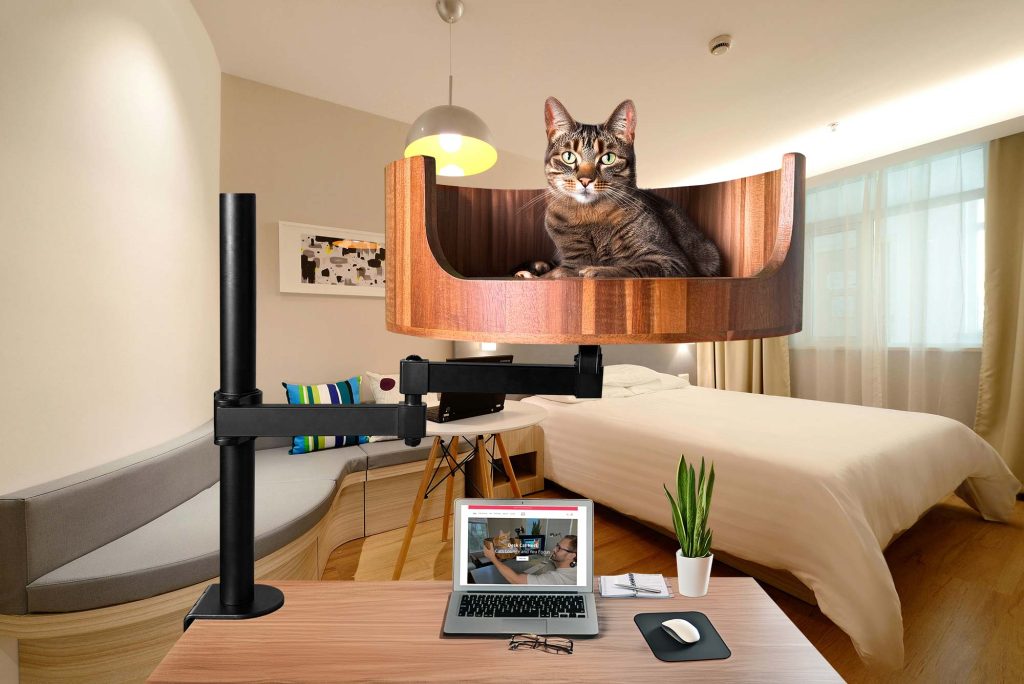Have you ever noticed your cat quivering for no apparent reason? This curious behavior can be puzzling to cat owners, leaving them wondering what could be causing their feline friend to shake or tremble. In this article, we will explore the reasons behind why cats quiver, what it could indicate about their health, and how to address any potential concerns.
One common cause of a cat quivering is excitement or anticipation. Just like humans may shake with excitement, cats can exhibit similar behavior when they are eager or stimulated. Another reason for quivering could be fear or anxiety, as cats may tremble when they feel stressed or threatened. Understanding the context in which your cat is quivering can help you determine the underlying cause and address any potential issues. Additionally, certain medical conditions such as pain, neurological disorders, or even poisoning can also result in quivering. By observing your cat’s behavior and seeking veterinary advice if necessary, you can ensure your furry companion stays happy and healthy.
1. Quivering in cats can be caused by a variety of reasons, including excitement, anxiety, or medical issues.
2. Understanding your cat’s body language and context can help determine the cause of the quivering behavior.
3. Seeking veterinary advice is important if the quivering is persistent or is accompanied by other concerning symptoms.
4. Providing a safe and comfortable environment for your cat can help reduce anxiety-related quivering.
5. Building a trusting relationship with your cat through positive reinforcement can help minimize quivering episodes.
Causes of Quivering
Cat quivering can be caused by several factors, including excitement, anxiety, fear, or even medical issues. For example, a cat may quiver when it is about to pounce on a toy or when it sees a bird through the window. In these cases, the quivering is often a sign of anticipation and readiness to play. On the other hand, a cat may quiver due to anxiety or fear, such as during a visit to the veterinarian or in response to a loud noise. It is essential to observe your cat’s body language and context to determine the underlying cause of their quivering.
Physical Manifestations of Quivering
When a cat quivers, it is not just the body that may be affected. Cats may also exhibit other physical manifestations such as dilated pupils, flattened ears, or a fluffed-up tail. These additional behaviors can provide further clues about the cat’s emotional state and help in understanding the reason behind the quivering. For instance, if a cat’s pupils are dilated and its ears are flattened while it quivers, it may indicate that the cat is feeling threatened or scared.
Managing Quivering Behavior
If your cat quivers frequently and it is not due to excitement or playfulness, it is essential to address the underlying cause. For example, if your cat is quivering due to anxiety, you can try to create a safe and calm environment for them by providing hiding spots, vertical space, or calming pheromones. Additionally, establishing a routine and regular playtime can help reduce stress and anxiety in cats. If the quivering persists or is accompanied by other concerning symptoms, it is recommended to consult a veterinarian to rule out any underlying medical issues.
Desk Cat Nest FAQ
What is a Desk Cat Nest?
A Desk Cat Nest is a cozy and comfortable bed designed specifically for cats to relax and sleep in while on a desk or table. It provides a safe space for your cat to rest and observe its surroundings.
Will a Desk Cat Nest help with my cat’s quivering?
While a Desk Cat Nest may provide a comfortable and secure environment for your cat, it is important to consult with a veterinarian to determine the underlying cause of your cat’s quivering. It may be a sign of anxiety, health issues, or simply cold weather.
How do I introduce my cat to a Desk Cat Nest?
To introduce your cat to a Desk Cat Nest, place some familiar bedding or toys inside to make it inviting. Encourage your cat to explore the nest on its own terms and provide positive reinforcement with treats or pets when it uses the bed.
Can a Desk Cat Nest be used for kittens?
Yes, a Desk Cat Nest can be suitable for kittens as well. Just make sure the size of the nest is suitable for their size and provide additional support and supervision when necessary.
How do I clean a Desk Cat Nest?
To clean a Desk Cat Nest, remove any bedding or toys, and gently wipe down the nest with a damp cloth or pet-safe cleaning solution. Allow the nest to air dry before placing it back on the desk.
In conclusion, the Desk Cat Bed is a valuable choice for addressing your cat’s quivers. By providing a cozy and secure space for your feline friend to rest, the Desk Cat Bed helps to alleviate anxiety and calm nerves, ultimately reducing quivers and promoting relaxation. With its convenient design that fits on your desk, this product not only benefits your cat but also enhances your workspace with a happy and content companion by your side. Invest in the Desk Cat Bed today to create a peaceful and harmonious environment for you and your furry friend.


